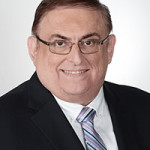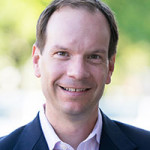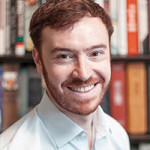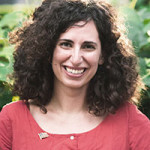



On Thursday, September 17, 2015, the voters of Ward 6 will give their ballots for a Candidate for Alderman in Ward Six for the term of two years. The Somerville Times asked each of the qualified candidates to answer five questions on their views relating to their possible tenure as Alderman, as well as provide a brief biography. Their responses are presented here in alphabetical order based on their last names.
Charles J. Chisholm

1. How long have you lived in the community and what, if any, prominent local groups have you had any interest in?
I have lived in Somerville for over 60 years, essentially all my life. While I am well-travelled, Somerville is my one and only hometown. I recently sponsored a fund raising event at my home for the LGBT Asylum Support Task Force which aids asylum seekers from Uganda who have fled state-sponsored violence against them and their families with food and lodging while their applications for asylum are pending. For my support I received a letter which reads, in part, “You are a consummate host, as well as a community activist/ civil rights and LGBT/ social justice advocate.”
2. What do you see as the primary role of the Ward 6 Alderman?
While the role of an alderman includes approving the municipal budget, funding the contract settlements, and enacting zoning ordinances, I believe that the primary function of a ward alderman is to insure that constituents’ issues are resolved. During this campaign this summer, I have rung door bells on every street in the ward. Residents have complained of speeding cars and trucks, street lighting problems, rat infestations around Davis Square, parking issues and associated overdevelopment, snow removal issues, high rents and transit costs and handicap access. 311 is not enough, these constituent services are my top priority.
3. What is or has been your commitment to civil rights and, in particular, the rights of the LGBT community?
As a college sophomore, my Jesuit professor recommended participation in a student boycott of the then segregated Boston Public School system. Risking incarceration and fines, I taught in the Roxbury Freedom School. Subsequently, I was offered a life-time membership in the NAACP, which I declined. I recently learned that President John F. Kennedy, similarly declined: standing up for racial justice should be the norm for people of conscience and conviction. As an eleven-time elected national delegate to the NEA-RA annual convention, I distributed nationwide materials on how to form gay-straight alliances in America’s high schools. Now, there are over 2,500.
4. What is your philosophy on meeting privately or accepting campaign contributions from developers doing business here in the city, in particular the controversy over the “Pay to Play” proposal by the Board of Aldermen?
As a matter of policy, I will not meet privately with any contractor or developer or their attorney(s). They should reduce their arguments, documents or supporting materials into writing and submit their documents to the City Clerk for distribution to all aldermen and to the press. I am committed to transparency. As far as campaign contributions are concerned, I have not accepted, I am not accepting nor will I ever accept any contribution of any size from any developer, business, or attorney associated with them. Period. No pay-to-play here. Additionally, I will vote to limit campaign contributions to $100.
5. What major long term innovative issues do you support and would advocate on the Board of Aldermen?
I support and will advocate for the Raise Up Massachusetts constitutional FAIR SHARE amendment to surtax those making above $1 million a year by 4%. I would like to see the money used for education and transit as follows:
- Bus and subway transit for the daily commuters (660,000) should be free. 2. Early childhood education should be statewide. 3. A satellite campus of Bunker Hill Community College should be built at Foss Park, specializing in job training certificate programs. Chelsea has one. So should Somerville. Secondly, I support the purchase of sidewalk snowplows, like they have in North Reading.
Bio: Charles Chisholm grew up on Flint Street in East Somerville. He attended the Little Flower School in East Somerville. Subsequently, he attended and graduated from Malden Catholic High School as his class salutatorian. Charles was offered a full presidential scholarship to Boston College and a full scholarship to Tufts University. He chose Boston College and graduated with a B.A. degree in mathematics. Charles began his teaching career at the Northeaster Junior High School and later taught high school at both Don Bosco Technical High School as department chair and at Malden Catholic High School. Charles was elected Ward 1 School Committee member and Ward 1 Alderman during this period. In 1982, Charles moved to ward six and completed his advanced degree at UMass Lowell with a M.S. degree in mathematics and was hired as an Instructor at Bunker Hill Community College. There, he was promoted to Assistant Professor, Associate Professor and finally to Full Professor, serving as Department Chair of the Math and Physics Department at BHCC. As a member of the Massachusetts Community College Council, Charles was elected chapter president by his peers annually from 1992-2000. He served as an elected delegate to the NEA-RA convention in eleven of his twenty-one years at BHCC. Charles has retired from full time teaching, but continues to teach at the college (two courses per semester (Calculus III for Engineering majors and Finite Mathematics). In addition to teaching for over 40 years, Charles enjoys downhill skiing, racquetball and playing chess.
Lance Davis

1. How long have you lived in the community and what, if any, prominent local groups have you had any interest in?
My wife, Amy, and I have lived in Somerville for fourteen years and are raising our two kids here. I enjoy being actively involved and contributing to our unique community. I was one of the leaders of Progress Together for Somerville because I saw the need to strengthen and revitalize Somerville Public Schools. I am a member of the PTA and volunteer regularly at the Brown School, where my children attend. My wife and I also serve on the Honorary Committee for the Somerville Homeless Coalition Gala and I’ve coached both my son’s and daughter’s soccer teams with Somerville Youth Soccer Association.
2. What do you see as the primary role of the Ward 6 Alderman?
First and foremost, I believe the Alderman’s role is to serve the residents of Ward 6. It is crucial that the Alderman not only be accessible but responsive to constituents, who have the most at stake in the future of the city. The importance of constituent services cannot be overstated. In addition to accessibility, I also believe it is important that Ward 6 has strong, independent leadership. As Alderman I will fight for our neighbors in Ward 6 and stand my ground for the best interests of our community.
3. What is or has been your commitment to civil rights and, in particular, the rights of the LGBT community?
LGBT rights are the civil rights battle of our generation. I worked on the campaign for my friend, Tim Schofield, an openly gay candidate, in 2005 when marriage equality was still very much in question in Massachusetts. I’ve always supported candidates who fought for LGBT rights, including Carl Sciortino, Pat Jehlen, and Denise Provost. Today, my family and I attend First Church Somerville where we share worship with a vibrant LGBTQ community and support, as a congregation, many initiatives such as the LGBT Asylum Support Task Force through the annual Drag Gospel Festival.
4. What is your philosophy on meeting privately or accepting campaign contributions from developers doing business here in the city, in particular the controversy over the “Pay to Play” proposal by the Board of Aldermen?
I believe that independence and transparency are absolute requirements of an Alderman. I will be beholden to no interests other than the people of Ward 6. I supported the pay to play ordinance as it was passed by the Board in 2014 and I look forward to revisiting the issue when it is taken up again by the Board.
5. What major long term innovative issues do you support and would advocate on the Board of Aldermen?
Affordability is the main issue I see facing Somerville. I support the ideas being considered by the Sustainable Neighborhoods Working Group to make our community more affordable and accessible to current and new residents. Diversity is our greatest strength and I support measures that increase inclusion in our community. I would continue to increase investment in public schools to ensure students and teachers have the necessary resources to thrive and succeed. I also support enhancing and expanding parks and open spaces. In a city as densely populated as Somerville, it would be difficult to understate the public health benefit of well-maintained green spaces. Finally, I will continue to advocate for improvements to the neighborhoods of Ward 6, including completion of the Davis Square Streetscape Improvement project.
Bio: Hi neighbors! My name is Lance Davis and I am running for Ward 6 Alderman. I have been deeply ingrained in the community the entire time my wife and I have lived in Somerville. In some ways, we’ve seen the community change dramatically but Somerville still retains the small town feel that we fell in love with, and that has drawn so many of our neighbors here. My primary reason for running is that, from my knowledge of and involvement in the community, I understand the concerns facing my neighbors and want to continue to make Somerville a place that people of all statuses and backgrounds can call home. I care deeply about the community, I recognize the importance of prioritizing community, and will be an advocate for the residents of Ward 6. You can learn more about me and how I plan to serve the community at http://www.lancedavis.org/ . You can also like my page on Facebook at Lance Davis for Ward 6 Alderman.
David W. S. Lieberman

1. How long have you lived in the community and what, if any, prominent local groups have you had any interest in?
I first moved to Somerville twelve years ago as a student. In 2010, my wife and I purchased our home on Powder House Terrace. I have maintained a strong commitment to public service, remaining active in City Year as a member and former co-chair of the Alumni Board, and mentor for those seeking legal and public service careers. I have also undertaken many pro bono projects, including helping an Iraqi refugee obtain asylum in the U.S after he was threatened by terrorists. In 2014, I was selected as a Boston Bar Foundation Public Interest Fellow for my commitment to public service.
2. What do you see as the primary role of the Ward 6 Alderman?
I think there are two primary roles. The first is to ensure that the residents of our community are kept apprised of decisions being made by the city that affect them. This includes proposed new developments and businesses, as well as broader issues like the new zoning ordinance. Second, our community needs an alderman that is prepared to advocate on their behalf to ensure that Ward 6 receives the city resources it needs to thrive, that that city is responsive to their requests, and that our community gets a fair and honest deal from powerful interests.
3. What is or has been your commitment to civil rights and, in particular, the rights of the LGBT community?
My record with the service and education movements speaks for itself. As an attorney, my pro bono work has included helping to obtain asylum for a transgendered woman persecuted on that basis in her home country. In 1999, my friends and I led a boycott of our Boy Scout camp after one of our fellow counselors was fired for being gay. I have remained close friends with two of the leaders of that boycott, Ijpe and Thom. They married in 2011, and served as two of the named plaintiffs in the recent Obergefell decision mandating marriage equality under the Constitution.
4. What is your philosophy on meeting privately or accepting campaign contributions from developers doing business here in the city, in particular the controversy over the “Pay to Play” proposal by the Board of Aldermen?
I used to prosecute public corruption and fraud cases with the Massachusetts Attorney General, and I have seen how the perception that powerful groups get favorable treatment corrodes trust in our government. As I go door-to-door and speak with my neighbors, people often express concern that important decisions are being made in the dark and for the benefit of connected individuals. It must be a priority for our Alderman to increase the transparency of our decision-making by taking whatever steps are necessary to ensure that our neighbors know they are being treated fairly by their government.
5. What major long term innovative issues do you support and would advocate on the Board of Aldermen?
I have a number of innovative ideas that are listed on my website, but briefly, I think the greatest challenges facing Ward 6 revolve around housing affordability. I support zoning that would encourage smart development, particularly near transit hubs, and increase the inclusionary zoning requirements to 20% in those areas. I would like to give serious consideration to a transfer (house-flipping) tax, and I would like to look at providing an incentive for landlords who take the steps necessary to keep long term tenants by providing them a tax exemption for those units.
Bio: I am running to be the next Alderman for Ward 6 because we need a strong advocate for our families and community. I have long been dedicated to advocacy and service. As a lawyer, I prosecuted environmental crimes and public corruption and fraud with the Massachusetts Attorney General’s Office. I now work in private practice, representing whistleblowers suing for fraud on behalf of the government and other parties in civil disputes. In 1999, I left Boston University to serve as an AmeriCorps member in City Year Boston. I worked with under-served students in Boston Public Schools, and spent the following year helping to found a new City Year site in Washington, D.C. I first moved Somerville twelve years ago for school, where I met my wife Jessica, and we both fell in love with the Davis Square area. After attending law school at Columbia University and serving as a judicial clerk for a federal judge, we returned to Somerville and purchased our home in 2010. I am excited about Somerville’s future, but I believe it needs strong leadership to ensure that as it grows and develops, it maintains its essential character and remains a place that both its long-time citizens and newer residents can call home. I believe that I can be that leader. I would love to hear what you think of the issues facing Somerville and Ward 6, please feel free to contact me directly at davidwslieberman@gmail.com, (617)863-0311, or visit my website at http://davidwslieberman.org.
Elizabeth Weinbloom

1. How long have you lived in the community and what, if any, prominent local groups have you had any interest in?
Like many, I came to the area for college and never left. My first apartment was in Union Square, in 2008, and I stayed in Union through my graduate studies at Harvard. After a foray over in Cambridge, I chose to return to Somerville in 2013 to build a long-term home near Davis Square with my wonderful roommates. I am committed to several local arts groups, including an amateur orchestra and Small & Casual Productions, a Somerville-based musical theater troupe that performs in living rooms. As half of a creative events production team, I have co-created large-scale public events for the Somerville Arts Council and the Somerville Armory.
2. What do you see as the primary role of the Ward 6 Alderman?
Traditionally, the primary role of a ward Alderman is constituent services – being an accessible, responsive, and pro-active partner for the ward at City Hall. I am well-suited to this aspect of the role, as I don’t have career or family commitments that would take me away from the ward during the day or jockey for my attention at night; additionally, my work in curriculum development is freelance and can be scheduled around the needs of the city. I also see the BOA as the agenda-setters of the city. I would seek to use the seat at the table afforded by a position on the BOA to encourage forward-thinking approaches to issues that affect the entire city and region, such as rising housing costs and making our streets safer for cyclists and pedestrians.
3. What is or has been your commitment to civil rights and, in particular, the rights of the LGBT community?
I am lucky enough to have come of age in a time and place in which LGBT rights have been continually expanding. I vividly remember marching with other undergrads from Harvard to Cambridge City Hall to celebrate the granting of the country’s first marriage licenses to same-sex couples. More recently, I raised my voice as an ally against police brutality at major #BlackLivesMatter protests in Boston and New York, an experience which affected my decision to expand my involvement in local politics. My skin color affords a lot of undeserved privileges, including ease in participation in our political system; I seek to make use of my privilege to be a strong ally.
4. What is your philosophy on meeting privately or accepting campaign contributions from developers doing business here in the city, in particular the controversy over the “Pay to Play” proposal by the Board of Aldermen?
I was dismayed by Mayor Curtatone’s veto of the proposed “Pay to Play” ordinance last year, and again by the BOA’s failure to override the veto. The ordinance would have been a limited – but powerfully symbolic – check on the power of developers to influence the city’s politics. We should be the ones making demands of developers – requiring higher percentages of new units be permanently affordable, for instance – and not allowing developers to make demands of us.
5. What major long term innovative issues do you support and would advocate on the Board of Aldermen?
The diminishing supply of affordable housing in our city is our biggest responsibility right now. As a largely residential city, we must ensure that homes remain accessible to residents of all ages, income levels, family sizes, and mobilities. I would work to expand affordable housing, combat displacement, reward good landlords, prevent speculation, and require developers to further our city’s social goals. There is no formula for this; rather, I would advocate for innovation and new approaches to dealing with this issue that currently affects so many American cities.
Bio: Elizabeth has chosen Somerville as her home and community since 2008. She originally came to the Boston area in 2003 to study at Harvard, having grown up in the New York suburbs. Her first apartment was in Union Square, and she continued renting in Union while she earned a masters in education. At the start of 2014, Elizabeth began making her home in a rented house on Chandler Street with her wonderful roommates. Elizabeth’s professional work is in education; she develops lesson plans, teaching guides, and online courses, working with school districts and educational organizations across the country to improve student outcomes and assist teachers in their work. In her community life, she participates in Somerville’s vibrant arts scene as a creator, performer, and consumer. She has produced several large public events in Somerville, including the ArtsUnion Ides of March street fair last spring (a collaboration with the Somerville Arts Council). An amateur cellist, social dancer, and occasional playwright, Elizabeth also helped found a Somerville-based living room theater troupe. Elizabeth cycles, walks, and rides the MBTA to get around; improving the safety of our streets for cyclists and pedestrians is a major priority for her. She is a Democrat and a feminist, and she strives to be an ally to people of color and the LGBTQ community. She is thirty years old. Elizabeth got into local politics to ensure that non-traditional households like her own will be able to continue living, working, and creating in Somerville into the future. She is committed to exploring creative policies to keep Somerville livable for the diverse community of renters, students, immigrants, young families, retired people, and artists who make this city great. Learn more at www.elizabethweinbloom.com.












Reader Comments